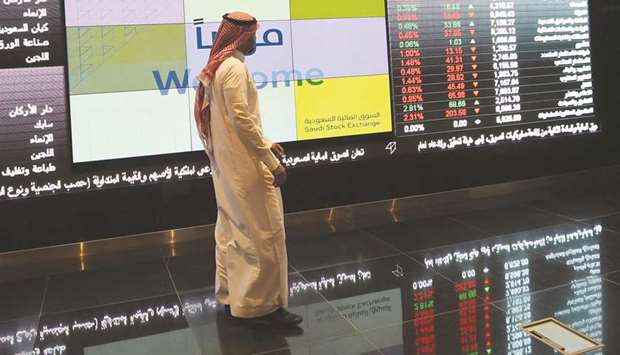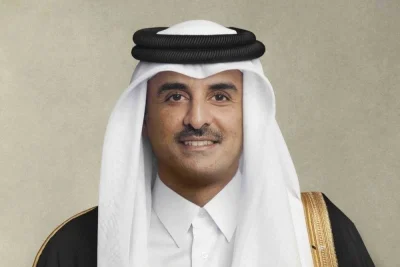The list of potential pitfalls for Middle East investors next year is long.
With oil in a bear market, pressure on energy exporters is mounting. Saudi Arabia’s global standing is being questioned and Washington has turned its back on Iran, opening the way for increased Russian influence.
The region has never been for the faint-hearted. Traders who snapped up Saudi assets in the first half of the year, only to see the market turn against them after the murder of columnist Jamal Khashoggi in Istanbul, are nursing steep losses. Bahrain’s friends only bailed out the nation after its bonds got a battering and Aramco’s postponed share sale has dealt a blow to investor confidence.
Then there’s Turkey, whose currency was among the worst performers in the world this year and still relies heavily on foreign inflows.
But amid the tumult, Marshall Stocker, a Boston-based money manager at Eaton Vance Corp, plans to spend a lot of time on the ground, “testing views and identifying opportunities.”
Here’s a list of some of the biggest risks that will keep investors on their toes next year:
Oil rout
Saudi Arabia, the world’s top crude exporter, needs prices to climb beyond $80 a barrel to balance its budget, according to Fitch Ratings. Weaker prices in 2019 could also reinforce pressure on other oil exporters’ balance sheets after the fiscal loosening seen in 2018, said Krisjanis Krustins, a Hong Kong-based director at Fitch Ratings. Oil is trading around $60 dollars a barrel despite a surprise announcement by Opec in early December to cut production.
Saudi geopolitics
Meanwhile, the euphoria surrounding Saudi Crown Prince Mohammed bin Salman’s promises to reform the economy are giving way to scepticism and concern over the country’s increasingly assertive and unpredictable foreign policy.
So prevalent is the disquiet over Khashoggi’s murder that Mark Mobius, a veteran investor in developing nations, says even MSCI Inc’s decision to include the nation’s stocks in its emerging-market gauge next year won’t be enough to lure funds back.
Turkish policy
The concern is that as local elections scheduled for March approach, the pressure on the central bank to unwind some of the tightening delivered in the second half of the year will grow.
Growth in the Turkish economy is slowing fast, but inflation is still far above target. Any premature loosening threatens to derail the currency, the linchpin for an economy that’s saddled with foreign-currency debt and remains hostage to capital inflows.
Leadership challenge
Some countries in the region, including Saudi Arabia, are either experiencing or will soon be facing a generational transfer of leadership, said Stocker at Eaton Vance. This makes “tenured, predictable leadership” an exception in the Middle East, not the rule, he said.
In Lebanon, where the cost of servicing government debt is equivalent to almost half of government revenue, politicians continue to squabble over the formation of a new government, potentially derailing fiscal-consolidation plans.
Political instability
There is a chance the rivalry between predominately Saudi Arabia and mainly Iran, which are already fighting proxy wars, could escalate, or that the conflict between Israel and Iran-backed Hezbollah could be reignited, Krustins said, potentially increasing credit risk throughout the region.
Tension between Israel and Iran has been rising over Iran’s entrenchment in Syria, where it has been fighting, largely through Hezbollah, to prop up President Bashar al-Assad.
And then there’s Russia, whose increased involvement in the Middle East will also mitigate Washington’s influence, adding another level of complexity to regional policy, said Abdelak Adjriou, a London-based money manager at American Century Investments.
“Trump is more focused on trade and US-centric issues than global politics, which leaves more space for Russian activity,” he said.
Blockade on Qatar
The Saudi-led embargo against Qatar is still continuing. The gas-rich nation has offset the blow on its economy by finding ways around the sanctions imposed in 2017.
Qatar’s stock market is one of the world’s best performers this year.

A Saudi investor monitors share prices at the Saudi Stock Exchange, or Tadawul, in the capital Riyadh (file). The euphoria surrounding Saudi Crown Prince Mohammed bin Salman’s promises to reform the economy are giving way to scepticism and concern over the country’s increasingly assertive and unpredictable foreign policy.


